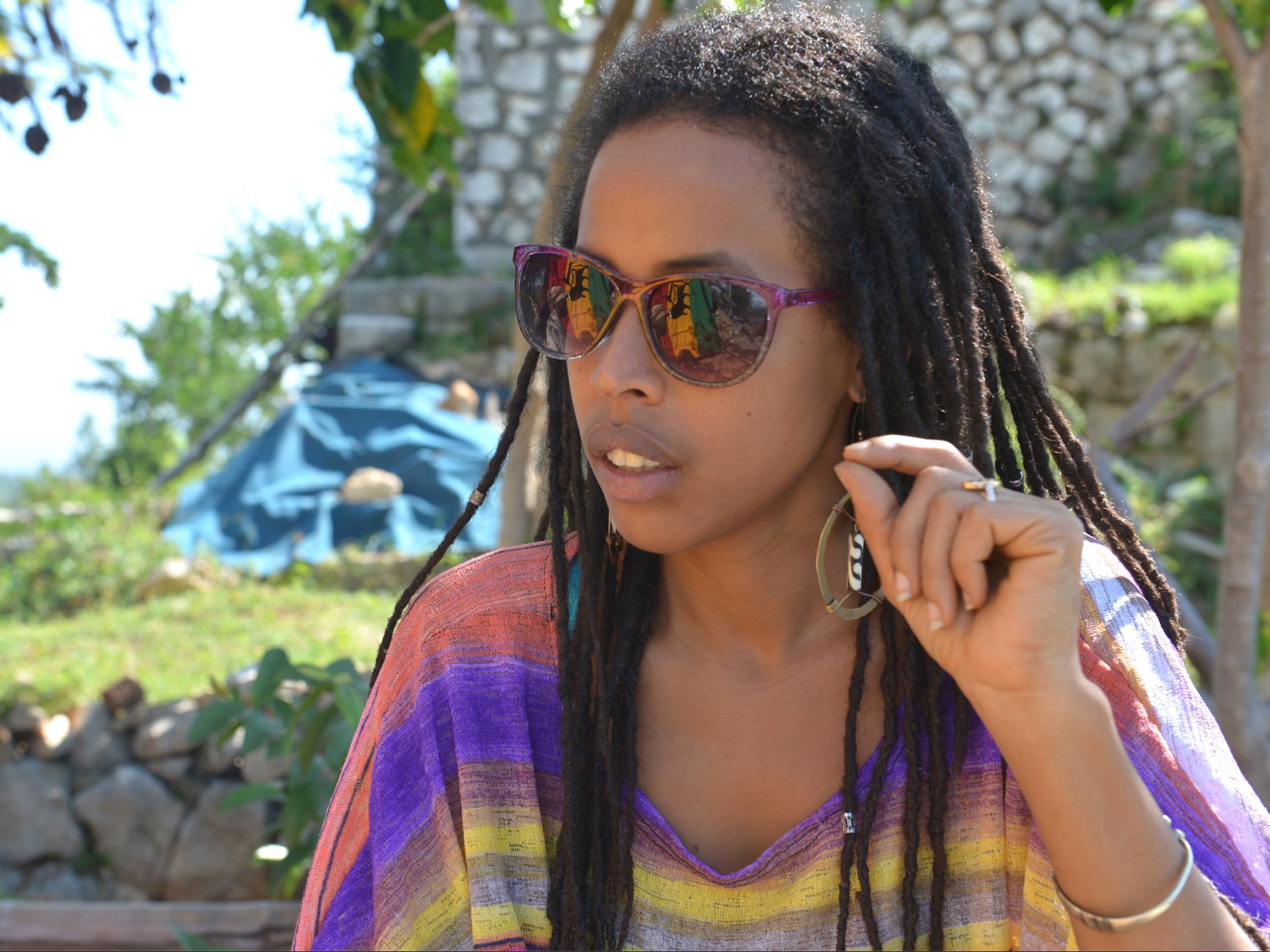Bob Marley’s granddaughter leads fight to save Rastafari tabernacle in Jamaica
Donisha Prendergast is among a group of activists occupying the site

A relative of Rastafari’s most celebrated adherent is now leading a fight to protect one of its most significant historical sites. Donisha Prendergast, Bob Marley’s eldest granddaughter, is among a group of activists occupying a Rastafari tabernacle on a Jamaican hilltop known as the Pinnacle – the site of the religion’s first community on the Caribbean island.
The spot, near the village of Sligoville, is where Leonard P Howell – one of the founders of the Rastafari movement – built a large house and established a self-sufficient Rasta community during the 1930s. The campaigners hope the Pinnacle will be declared the property of the Howell family and the Rastafari faith.
Yet the site is the subject of a long-running dispute between the Howells and St Jago Hills Development Ltd, the local property developer whom Jamaican courts say is its official owner.
Last Thursday Ms Prendergast led a rally on behalf of the campaign in the Jamaican capital, Kingston. The event, called Ethiopians Rising, reportedly drew around 100 people wearing the Rasta colours of red, green and gold. Ms Prendergast told The Gleaner, “We are not going anywhere.”
As many as 4,500 people once lived in the community Howell founded, and last September a quarter-acre plot at the Pinnacle was designated a national monument by the Jamaica National Heritage Trust. But the campaigners say the entire area ought to be protected.
Monty Howell, son of the late Rasta pioneer, told the Daily Observer that the documents proving his family’s claim to the site were deliberately destroyed by the island’s colonial government during the 1930s and 1940s. “No black person in Jamaica owned property, nothing compared to Pinnacle,” he said. “They tried everything to chase my father off that land.”
Without a title to prove their ownership, lawyers for the Rastafari community say the Pinnacle’s historical significance merits its protection under the UN Declaration on the Rights of Indigenous Peoples.
Rastafari emerged in Jamaica during the 1930s in response to the colonial oppression of the island’s black population. Its adherents were regularly victimised by the police until, a generation later, its blend of Old Testament scripture and African spirituality was popularised worldwide by reggae megastar Marley.
The Pinnacle was razed by the British colonial authorities in 1953 and Howell pushed off the land. He died 28 years later, in a cave close to the ruins of the home he had built there.
Subscribe to Independent Premium to bookmark this article
Want to bookmark your favourite articles and stories to read or reference later? Start your Independent Premium subscription today.

Join our commenting forum
Join thought-provoking conversations, follow other Independent readers and see their replies